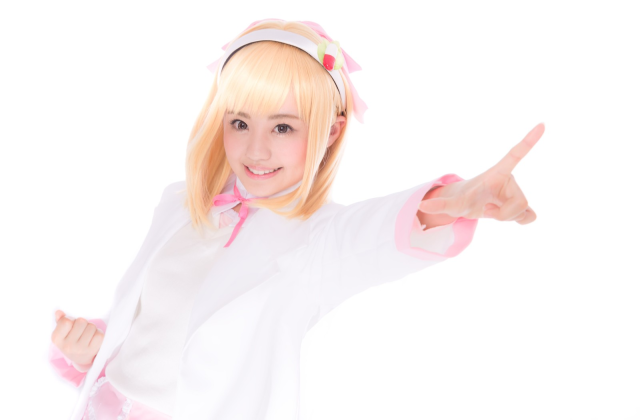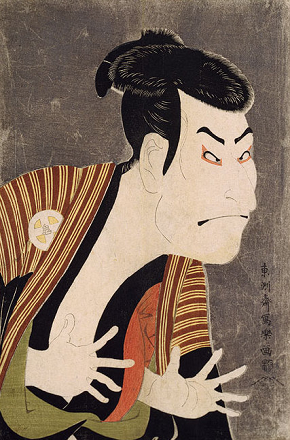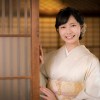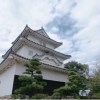
Dojinshi writer-turned-engineer-turned-mystery writer isn’t a fan of how anime sounds (or looks, for that matter).
Hiroshi Mori has a pretty wide range of interests. Professionally, he’s earned a doctorate in engineering as well as awards from the Architectural Institute of Japan, Japan Concrete Institute, Japan Cement Association, and Japan Society of Materials Science, and is also a former associate professor at Nagoya University. Oh, and he’s also a novelist who’s written dozens of books, including the inaugural Mephisto Prize for Japanese mystery writing. Then there are his leisure hobbies, which include gardening, playing with his dog, and building/operating model trains and helicopters.
But one thing Mori isn’t a fan of? Anime, and he blames much of his lack of interest on his opinion of Japanese voice acting.
“I hear that Japanese animation is well thought-of internationally, but there are some things about it that just don’t work for me,” mused Mori in a recent blog post, immediately identifying “the voices, or way of speaking” as one of his personal problem areas. “There’s too much emotion in the delivery, and it makes me feel like I’m watching a kabuki play or samurai movie or TV show, and for me it just doesn’t register as real people talking. They shout too much. Their voices tremble too much. The way they breathe is too intense.”
▼ Could Onji Otani III have gone into anime voice acting if he were alive today?
It’s true that kabuki, which began as an art form in an era when there was no way to zoom in on or otherwise amplify the actors movements or voices for the benefit of the audience, has a long tradition of dynamically exaggerated movements and speaking voices, and that tradition was carried on in many of Japan’s earliest films and TV series, when tales of the days of the samurai were especially popular. But Mori feels that in continuing that trend with anime voice acting, the sense of immersion is broken, and he also wonders how that’s not a deal-breaker for foreign anime fans. “I suppose that’s the mindset people who watch anime in many countries outside Japan have,” Mori hypothesized. “They watch anime like they’re watching kabuki. It’s a maniacal, alien culture to them, but if they can get into it, they become fans.”
Mori goes on to say that he’s not particularly enamored of anime visuals either, despite having been part of a dojinshi manga-making club in his high school days, because once the illustrations start moving, he can’t use his own visualization to see how the characters would move, like he could when reading a book. “[Watching anime] feels like watching humans acting with manga masks on,” he says.
▼ Though one has to wonder if he made that analogy without seeing the anime masks we talked about here.
ワンフェスを離脱して会社に戻りました!高温多湿の中キグルミの戦友のみなさま大変お疲れ様でした!会場でお会い出来たみなさま、#むにむに製作所 のみなさまありがとうございました♪ キグルみたかったのですが軍務だったので。また次のイベントで是非~♪ #WF2019S pic.twitter.com/MtphNatwEj
— にゃんべる☆Nyanbelle (@Nyanbelle2) July 28, 2019
Getting back to Mori’s voice acting concerns, though, even live-action actors in mainstream modern Japanese TV dramas and movies with contemporary settings often display a stage-theatric quality to their dialogue delivery, so it could just be an across-the-board higher tolerance or affinity for such dramatics among Japanese media consumers. Another possible factor is that, at 61 years old, Mori is pretty far outside the teen/young adult demographic that anime is aimed at, and which also provides the industry with the bulk of its financial support. The 15-25 age group is largely made up of people who are still in the process of figuring out their personal identities, and to a lot of them, watching and listening to anime characters who are confident enough to declare their emotions like there’s a spotlight shining on them is likely an inspiring, or at least entertaining, way to spend their free time.
Though the prevailing style of anime voice acting may not be Mori’s cup of tea, it’s sort of hard to argue with the results, as voice actor/actress fandom in Japan is more passionate now than it’s ever been before. It’s also worth pointing out that while his personal issues with the medium are big enough that Mori says “I hardly ever watch anime,” he’s apparently OK enough with it to allow two of his novels, The Perfect Insider and The Sky Crawlers, to get anime adaptations, although with some pretty subdued voice acting for the latter.
Source: Hiroshi Mori blogi via Hachima Kiko
Top image: Pakutaso
Insert image: Wikipedia/Cropbot
● Want to hear about SoraNews24’s latest articles as soon as they’re published? Follow us on Facebook and Twitter!


 Man questioned by police after building “girl” out of plastic bottles, taking her out on a date
Man questioned by police after building “girl” out of plastic bottles, taking her out on a date Pen-Pineapple-Apple-Pen creator Piko Taro to get the anime treatment
Pen-Pineapple-Apple-Pen creator Piko Taro to get the anime treatment Singing and dancing lessons, too!? An inside-look at a Tokyo voice acting academy
Singing and dancing lessons, too!? An inside-look at a Tokyo voice acting academy Head of Tokyo Olympics doesn’t want women in leadership roles because he thinks they talk too much
Head of Tokyo Olympics doesn’t want women in leadership roles because he thinks they talk too much New Japanese mascot character: A train station monster that grabs children who don’t mind the gap
New Japanese mascot character: A train station monster that grabs children who don’t mind the gap Japan has nearly 4 million abandoned homes, but where and why?
Japan has nearly 4 million abandoned homes, but where and why? FUK COFFEE?!? Japanese cafe has a perfectly innocent reason for its startling-looking name
FUK COFFEE?!? Japanese cafe has a perfectly innocent reason for its startling-looking name Two things to do, and two things not to do, when leaving a traditional Japanese inn
Two things to do, and two things not to do, when leaving a traditional Japanese inn Japanese-style accommodation at the new Premium Dormy Inn hotel in Asakusa will blow your mind
Japanese-style accommodation at the new Premium Dormy Inn hotel in Asakusa will blow your mind We save money on crotchless jeans from Japanese brand Beams by making our own
We save money on crotchless jeans from Japanese brand Beams by making our own One of Japan’s oldest castles now lets travelers spend night on the grounds, drink in its keep
One of Japan’s oldest castles now lets travelers spend night on the grounds, drink in its keep Kim Kardashian and Kanye West spotted in Japan 【Videos, Pics】
Kim Kardashian and Kanye West spotted in Japan 【Videos, Pics】 Studio Ghibli unveils new goods that tip the hat to The Cat Returns
Studio Ghibli unveils new goods that tip the hat to The Cat Returns Beautiful set of 24 Ghibli anime memo pads returns, will have you wanting to take notes by hand
Beautiful set of 24 Ghibli anime memo pads returns, will have you wanting to take notes by hand Starbucks at Shibuya Scramble Crossing reopens, but is it really bigger and better than before?
Starbucks at Shibuya Scramble Crossing reopens, but is it really bigger and better than before? Foreigner’s request for help in Tokyo makes us sad for the state of society
Foreigner’s request for help in Tokyo makes us sad for the state of society Bad tourist manners at Mt Fuji Lawson photo spot prompts Japanese town to block view with screens
Bad tourist manners at Mt Fuji Lawson photo spot prompts Japanese town to block view with screens McDonald’s Japan’s new pancake pie is a taste sensation
McDonald’s Japan’s new pancake pie is a taste sensation Japanese city loses residents’ personal data, which was on paper being transported on a windy day
Japanese city loses residents’ personal data, which was on paper being transported on a windy day Studio Ghibli unveils massive T-shirt collection featuring top anime movie characters
Studio Ghibli unveils massive T-shirt collection featuring top anime movie characters McDonald’s new Happy Meals offer up cute and practical Sanrio lifestyle goods
McDonald’s new Happy Meals offer up cute and practical Sanrio lifestyle goods New definition of “Japanese whiskey” goes into effect to prevent fakes from fooling overseas buyers
New definition of “Japanese whiskey” goes into effect to prevent fakes from fooling overseas buyers Our Japanese reporter visits Costco in the U.S., finds super American and very Japanese things
Our Japanese reporter visits Costco in the U.S., finds super American and very Japanese things Japanese ramen restaurants under pressure from new yen banknotes
Japanese ramen restaurants under pressure from new yen banknotes All-you-can-drink Starbucks and amazing views part of Tokyo’s new 170 meter-high sky lounge
All-you-can-drink Starbucks and amazing views part of Tokyo’s new 170 meter-high sky lounge More foreign tourists than ever before in history visited Japan last month
More foreign tourists than ever before in history visited Japan last month New Pokémon cakes let you eat your way through Pikachu and all the Eevee evolutions
New Pokémon cakes let you eat your way through Pikachu and all the Eevee evolutions Disney princesses get official manga makeovers for Manga Princess Cafe opening in Tokyo
Disney princesses get official manga makeovers for Manga Princess Cafe opening in Tokyo Sales of Japan’s most convenient train ticket/shopping payment cards suspended indefinitely
Sales of Japan’s most convenient train ticket/shopping payment cards suspended indefinitely Sold-out Studio Ghibli desktop humidifiers are back so Totoro can help you through the dry season
Sold-out Studio Ghibli desktop humidifiers are back so Totoro can help you through the dry season Japanese government to make first change to romanization spelling rules since the 1950s
Japanese government to make first change to romanization spelling rules since the 1950s Ghibli founders Toshio Suzuki and Hayao Miyazaki contribute to Japanese whisky Totoro label design
Ghibli founders Toshio Suzuki and Hayao Miyazaki contribute to Japanese whisky Totoro label design Doraemon found buried at sea as scene from 1993 anime becomes real life【Photos】
Doraemon found buried at sea as scene from 1993 anime becomes real life【Photos】 Tokyo’s most famous Starbucks is closed
Tokyo’s most famous Starbucks is closed One Piece characters’ nationalities revealed, but fans have mixed opinions
One Piece characters’ nationalities revealed, but fans have mixed opinions We asked a Uniqlo employee what four things we should buy and their suggestions didn’t disappoint
We asked a Uniqlo employee what four things we should buy and their suggestions didn’t disappoint We interview voice actress Shoko Nakagawa, learn what gave her the greatest shock of her career
We interview voice actress Shoko Nakagawa, learn what gave her the greatest shock of her career Final Fantasy artist Yoshitaka Amano anthropomorphizes katana made from a meteorite
Final Fantasy artist Yoshitaka Amano anthropomorphizes katana made from a meteorite Hollywood actor Samuel L. Jackson reveals that he’s an anime fan【Video】
Hollywood actor Samuel L. Jackson reveals that he’s an anime fan【Video】 Director of The Boy and the Beast, Summer Wars explains why he rarely casts anime voice actors
Director of The Boy and the Beast, Summer Wars explains why he rarely casts anime voice actors Massive 120-meter Godzilla statue being built as part of Japanese theme park’s newest attraction
Massive 120-meter Godzilla statue being built as part of Japanese theme park’s newest attraction Anime voice actress tells fan there’s not a woman in the world who’d be willing to marry him
Anime voice actress tells fan there’s not a woman in the world who’d be willing to marry him Otaku crowd control could be changing with new “anime character voice” megaphones
Otaku crowd control could be changing with new “anime character voice” megaphones Tokyo Olympics organizing committee president resigns over sexist remarks
Tokyo Olympics organizing committee president resigns over sexist remarks The Body Shop unveils handsome anime wizard characters for vegan beauty product in Japan
The Body Shop unveils handsome anime wizard characters for vegan beauty product in Japan Do Japanese men like it when real women speak in anime-style voices? Survey investigates
Do Japanese men like it when real women speak in anime-style voices? Survey investigates Japanese raccoon stands tall to steal zoo visitors’ hearts as his “pals” steal his treats 【Video】
Japanese raccoon stands tall to steal zoo visitors’ hearts as his “pals” steal his treats 【Video】 Japan has more anime/video game actresses than ever before, according to major seiyu magazine
Japan has more anime/video game actresses than ever before, according to major seiyu magazine Otakon to Host X Japan Leader Yoshiki
Otakon to Host X Japan Leader Yoshiki Producer Masi Oka announces first Japanese actor in Netflix Death Note movie
Producer Masi Oka announces first Japanese actor in Netflix Death Note movie Voice of beloved Japanese kid’s show character speaks out about living with ALS
Voice of beloved Japanese kid’s show character speaks out about living with ALS Japanese rail employee surprises commuters with unusual-sounding announcement
Japanese rail employee surprises commuters with unusual-sounding announcement
Leave a Reply